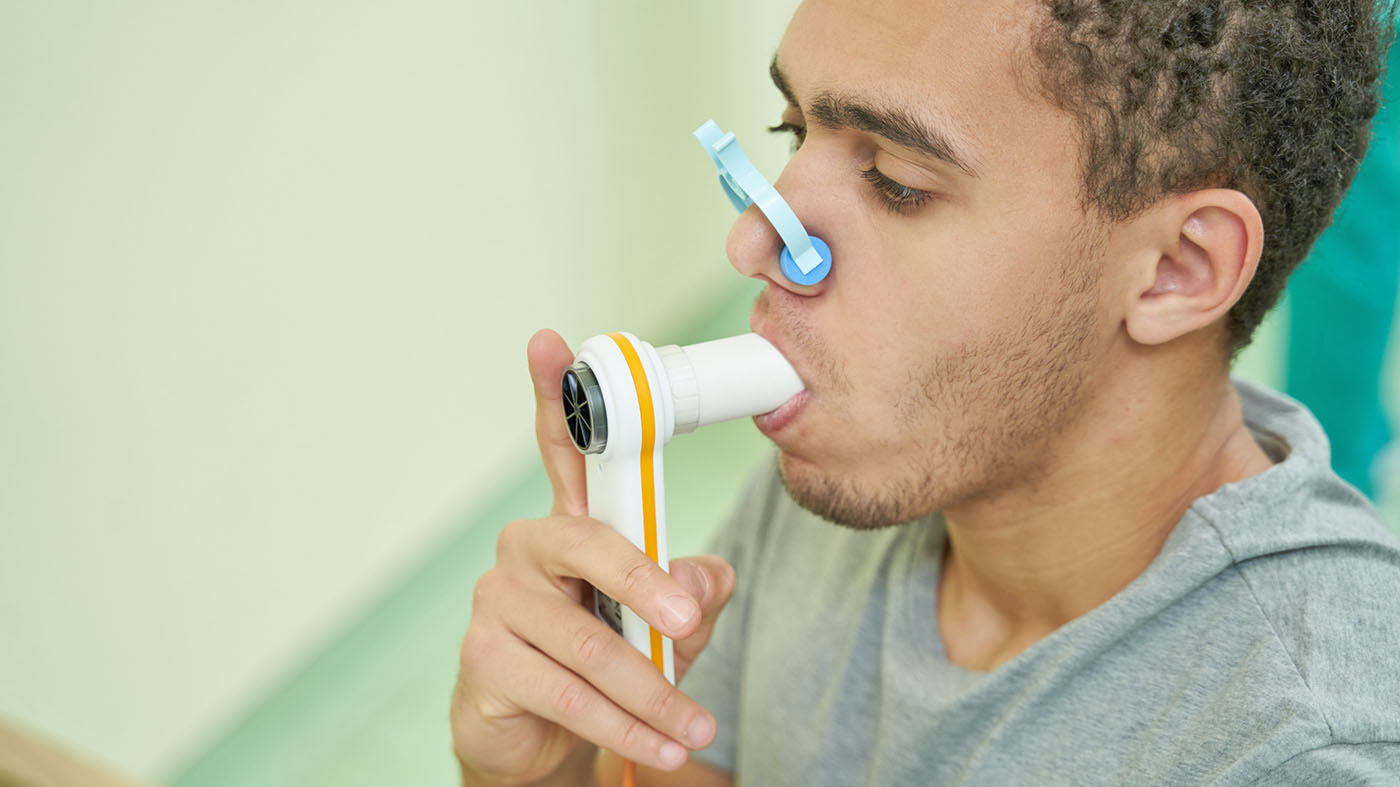TelePulmonology gives Veterans access to lung specialists and care.
According to the American Lung Association, Veterans are more likely than civilians to have chronic obstructive pulmonary disease, a progressive lung disease that causes damage to the lungs.
Veterans who live in rural areas are more at risk than other Veterans for COPD and other lung diseases. But what can Veterans do when they don’t live near a respiratory specialist?
That’s where VA’s TelePulmonology service comes in.
Dr. Laura Spece is a pulmonary and critical care provider at Puget Sound VA in Seattle. Through TelePulmonology, she can treat Veterans who live in Washington, Oregon, Idaho and Alaska.
“I don’t even have a specialist available to send somebody to if they live in a rural, remote place, through community care or otherwise. So, telemedicine’s really helpful to level the playing field for Veterans who would otherwise not have access to the best high-quality care,” Spece said.
TelePulmonology services for those who served
VA pulmonologists can provide vital care through telehealth to Veterans across the country. Veterans who have been referred to TelePulmonology can meet virtually with a pulmonologist over VA Video Connect, VA’s secure videoconferencing app. For conditions like COPD, the provider can prescribe medication without an in-person visit.
If a test is required, services like TeleSpirometry may be available depending on location. Spirometry measures the flow and amount of air going into and out of the lungs. Instead of traveling for hours to a VA medical center, Veterans can visit a local community-based outpatient clinic that has the equipment and take the test there. The data is then sent to a pulmonologist who can make a diagnosis or prescribe medication.
Telehealth is crucial for lung transplant patients. VA has only three lung transplant sites in the U.S., so providers use telehealth to prepare transplant patients who don’t live near those sites. Telehealth also allows providers to check on Veterans for many years after their transplant procedures to make sure they aren’t experiencing complications.
“It’s really nice to work with Veterans across the U.S. I’m not just restricted to my zone,” Spece said.
Respiratory risk for Veterans
Veterans may be at higher risk for lung conditions like asthma, COPD and respiratory cancers because of exposure to hazardous conditions and environmental pollutants, such as Agent Orange. In addition, almost 30% of Veterans use tobacco products according to a 2018 study by the U.S. Centers for Disease Control and Prevention.
Pulmonary care for Veterans has additional importance under the PACT Act, which expanded VA health care and benefits for Veterans exposed to burn pits, Agent Orange and other toxic substances. It added more than a dozen lung-related conditions to VA’s list of conditions that are presumed to be caused by exposures.
For Veterans with lung conditions, whether due to exposures or other factors, TelePulmonology is a convenient, patient-centered care option.
“I really believe that TelePulmonology can help improve access and help remove these disparities in access to care for Veterans who just happen to live farther away or can’t get to a big urban medical center,” Spece added.
Talk to your VA care team today to see if TelePulmonology and TeleSpirometry are available in your location. For more information on telehealth resources for Veterans, visit VA Telehealth Services.
Topics in this story
More Stories
Students from the Fort Jackson Noncommissioned Officer Academy (NCOA) recently volunteered at the Columbia VA Health Care System’s Dorn Campus.
At 79, Douglas B. Hatch was paralyzed by Guillain-Barré syndrome. Now 83, he’s training to compete in the National Veterans Wheelchair Games.
VA delivers the care you have earned—whenever and wherever you need it.






I think we all know that telehealth is about as useful as urgent care offices. They can help with minor issues. But especially in rural areas, where my dad lives, he struggles with stage 4 lung cancer, on top of that he has major issues with blood clots, I can vouch first hand that he almost lost his foot waiting for a doctor’s appointment , which happened to be where they all are, Phoenix. He’s expected to drive himself to numerous appointments in the valley despite his condition. If those issues aren’t bad enough , now he can’t even get reimbursed for his travel because the VA has made it impossible to create a new account under the 3rd party agency who now handles travel , yet has no access to your account, passwords, or anything , they’re useless. It’s done nothing but make it impossible for veterans to sign up, and now family can’t even help them submit their claims because all the ridiculous two step verifying. Elderly people aren’t tech savvy enough to navigate all this crap. My dad is perfect example. If this is what an improved VA system looks like, it’s disgraceful
And if my dad passes away because he had to wait 3 months for a doctor visit, you will be hearing more from me. I’d like to know how many veterans are struggling to set up their account for travel benefits, how many simply gave up trying ? Cuz really , who really cares ? It saves the government money if nobody can log in and file claims. It’s BS.